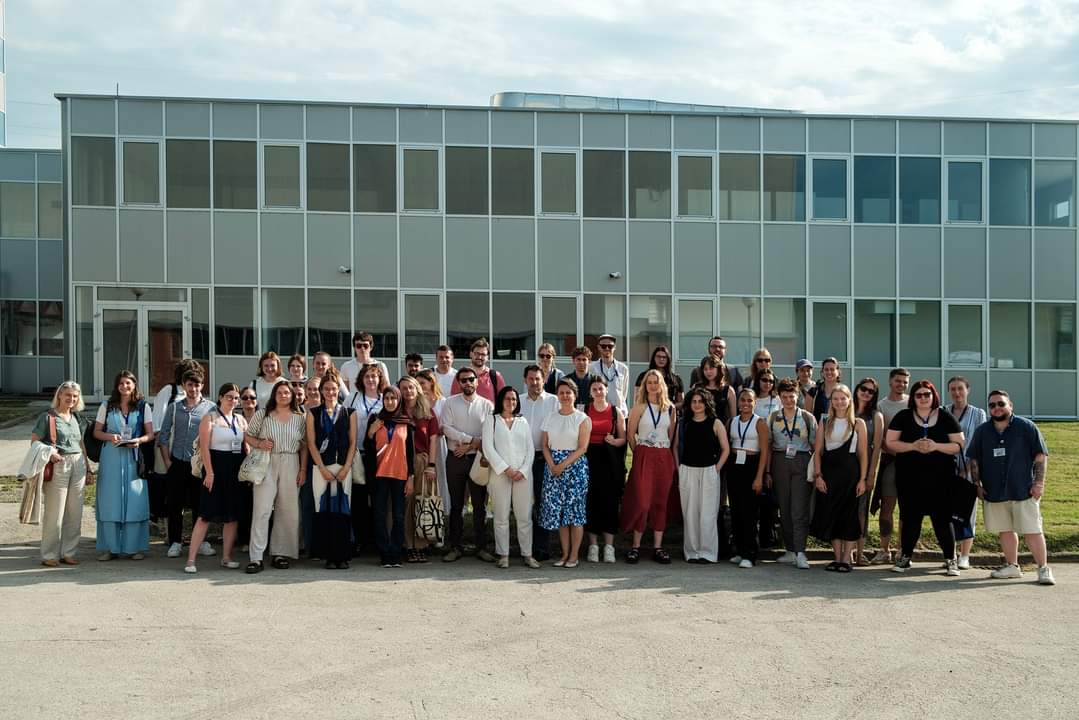
The fifth edition of the Srebrenica Youth School, held from 7-12 July in the historic eastern Bosnian town of Srebrenica, was organized jointly by the Post-Conflict Research Center (PCRC) and the Srebrenica Memorial Center (SMC). This annual event continues to serve as a pivotal platform for young leaders and activists to engage deeply with issues of remembrance, prevention, and peacebuilding.
48 participants from Bosnia and Herzegovina, in addition to 13 countries around the world, convened to honor the memory of the victims of the Srebrenica genocide. Through interactive panels, expert lecturers, discussions with survivors from Srebrenica and Rwanda, and memorial visits, the fifth edition of the Srebrenica Youth School furthered its mission of empowering the next generation to contribute meaningfully to the ongoing process of healing and justice.
Participants of the school had the opportunity to talk with representatives of international and local organizations in Bosnia and Herzegovina (UN, OSCE, EU, ICMP, Humanity in Action, La Benevolencija) who are working on transitional justice and peacebuilding projects. They also talked with professors from Bosnia and Herzegovina – Dino Abazović and Edina Bećirević (University of Sarajevo), as well as with David Simon (Yale University), Melani Cammett (Harvard University), and with world-renowned directors of memorials in Kigali (Freddy Mutanguha) and Johannesburg (Tali Nates).
The School featured an in-depth exploration of critical topics such as religion, identity, and ethnicity; the rise of glorification of war criminals and hate speech in the Western Balkans; accounting for the missing from Srebrenica; legacies of apartheid and the Holocaust; slow-motion genocide; ethnic politics and peacebuilding approaches; genocide prevention; intergenerational responsibility and lessons from Rwanda.
The Srebrenica Youth School underscored the critical importance of oral testimonies, as evidenced by the presence of Muhizin Omerović, a survivor of the Srebrenica genocide, Freddy Mutanguha, a survivor of the genocide against the Tutsi in Rwanda, and Tali Nates, the granddaughter of a Holocaust victim.
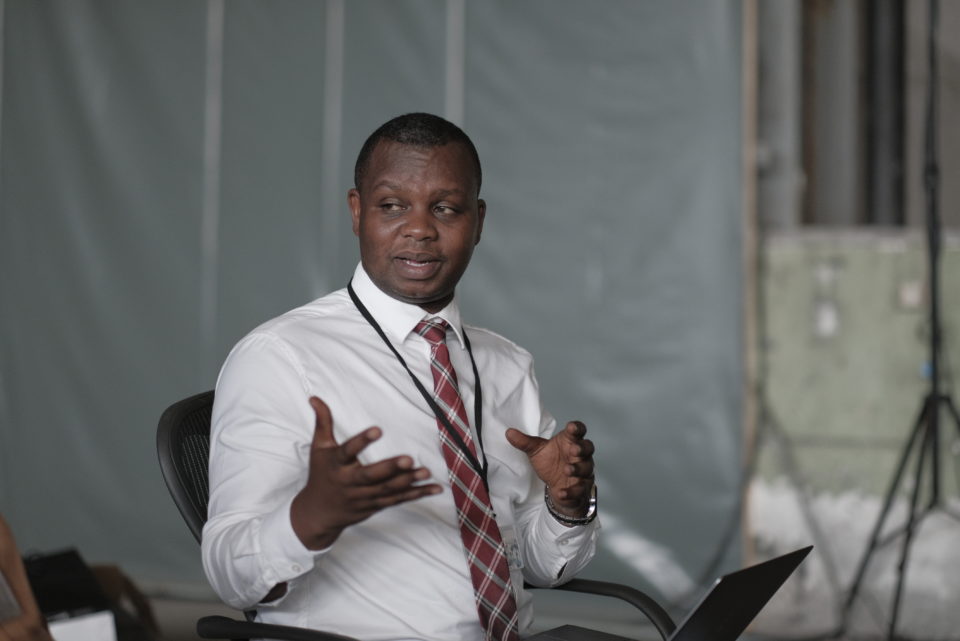
On 10 July , participants also attended the arrival of the remains of 14 genocide victims, and on 11 July, the collective funeral.
“We deal with alive history”
The School was officially opened by Velma Šarić, PCRC President and Founder, and Emir Suljagić, Director of SMC. In his opening remarks, Suljagić emphasized the unique significance of the site where the School took place, stating, “This is one of our sacred locations. We are concerned with history, but unlike many memorials around the world, we deal with alive history, unsettled history.”
Šarić underscored the importance of peace education, particularly in light of the recently adopted UN resolution on the genocide. The resolution emphasizes the need to include knowledge of the genocide in school curricula not only in Bosnia and Herzegovina but globally. “We now have an even greater responsibility to create a platform that young people will understand. This education is essential for prevention and ensuring such atrocities are never repeated,” Šarić concluded.
Participants had the opportunity to tour the Memorial Center, guided by Enis Mustafić, the center’s custodian. They discussed the importance of preserving the memory of the genocide through documentation as well as artistic mediums. This tour of the SMC left a notable impression on the students, with participant Ana Gvozdić from Mostar commenting, “The visit to the Memorial Center left a particular mark on me; its exhibitions emphasize the importance of testimonies for establishing truth and achieving justice, and they draw attention to the mistakes of the international community.”
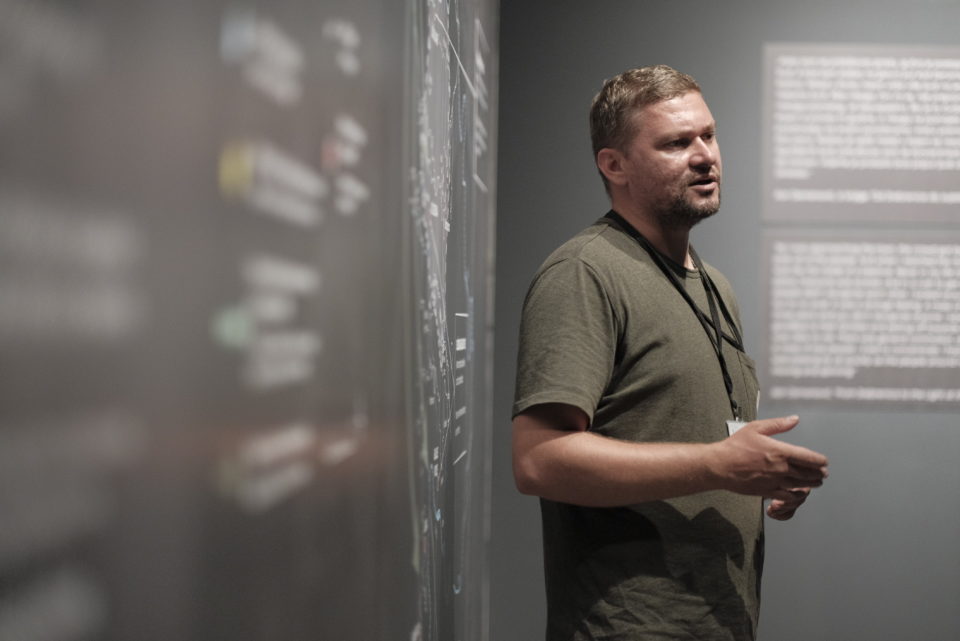
Prejudice, Glorification of Crimes, and Missing Persons
On day two of the Youth School, Dino Abazović, a professor from the Faculty of Political Sciences at the University of Sarajevo, gave a lecture about religion, identity, and ethnicity. Abazović stressed that dialogue in BiH is possible only when “we allow the other to present themselves as they truly are, to articulate their position, rather than being fixated on our own preconceived notions about the other, which are often filled with prejudices, stereotypes, and a detailed ignorance of the other.”
This issue of prejudice and preconceived notions was further explored in the panel discussion on the rise of glorification of war criminals and hate speech in the Western Balkans. This featured Agnes Picod (United Nations in Bosnia and Herzegovina), Vladimir Andrle (Jewish Cultural-Educational and Humanitarian society, La Benevolencija), Joeri Maas (European Union in Bosnia and Herzegovina), Halisa Skopljak (OSCE Mission to Bosnia and Herzegovina), and Zarja Marković (Humanity in Action Bosnia and Herzegovina). The panel delved into how such prejudices contribute to the alarming rise of hate speech and the dangerous glorification of war criminals in the region.
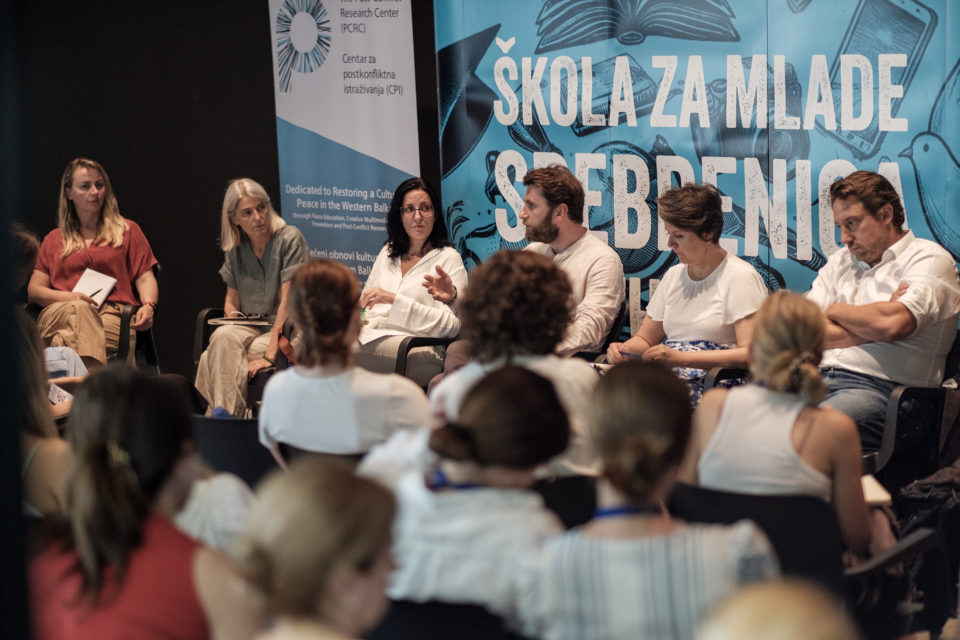
The school’s participants also had the opportunity to attend a lecture by Nihad Branković, Senior Government Relations Adviser from the International Commission for Missing Persons (ICMP). Branković explained the identification process that begins after the remains of missing persons are located.
“Currently, the concept of state responsibility is insufficiently equipped to handle ad hoc situations. Therefore, ICMP encourages the development of policies and the creation of a legal framework,” said Branković. He added that there are at least 7,000 people who are still missing in Bosnia but, despite this, every year the country witnesses fewer and fewer exhumations and findings of remains. This, he told students, is due to the fact that governments, local perpetrators and their civilian accomplices are unwilling to cooperate with the ICMP.
On 10 July, summer school participants also had the opportunity to attend the conference, “Empowering Through Remembrance: Upholding Intergenerational Responsibility”, organized by the Srebrenica Memorial Center as part of the 29th commemoration of the Srebrenica genocide. “The conference was organized to remind us all of our responsibility: to remember that some before us accepted the duty to pass on what they saw, what they experienced, and what they witnessed. This responsibility now rests with new generations,” said SMC Director, Suljagić.
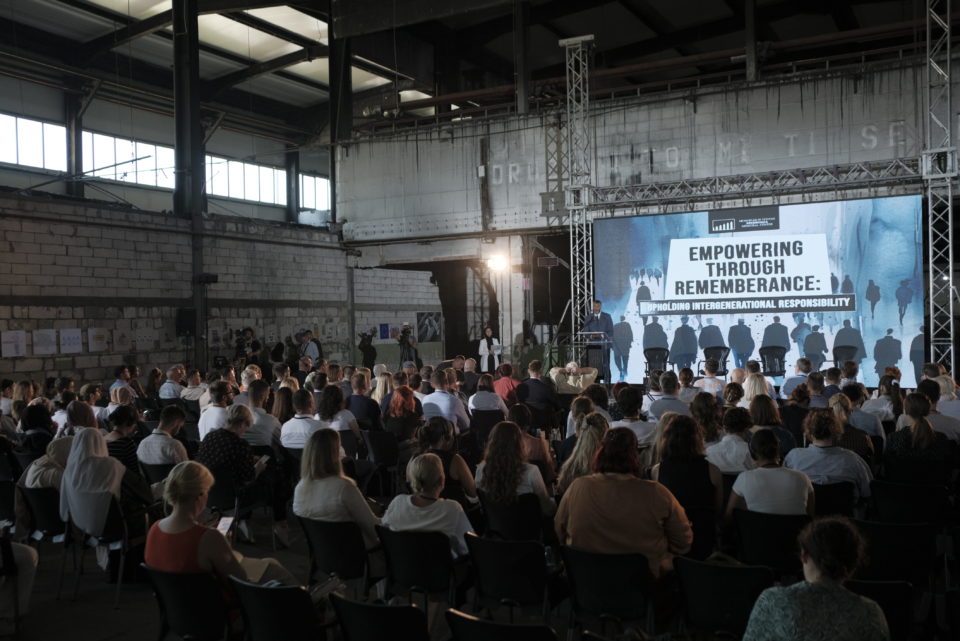
Testimonials
Throughout the duration of the school, participants were accommodated at the Ensemble House and the Emmaus Foundation premises. They also had the opportunity to visit the House of Good Tones, a local organization dedicated to providing children and young people in Srebrenica with access to quality educational, cultural, and entertainment resources.
Reflecting on his experience as a student in the Youth School, Gian Remnant from the USA, told us, “Being at the Srebrenica Youth School was an eye-opening experience that provided a profound understanding of the significance of remembrance and memorialization. Meeting survivors and hearing their stories firsthand was incredibly impactful, something that cannot be fully grasped from books alone.”
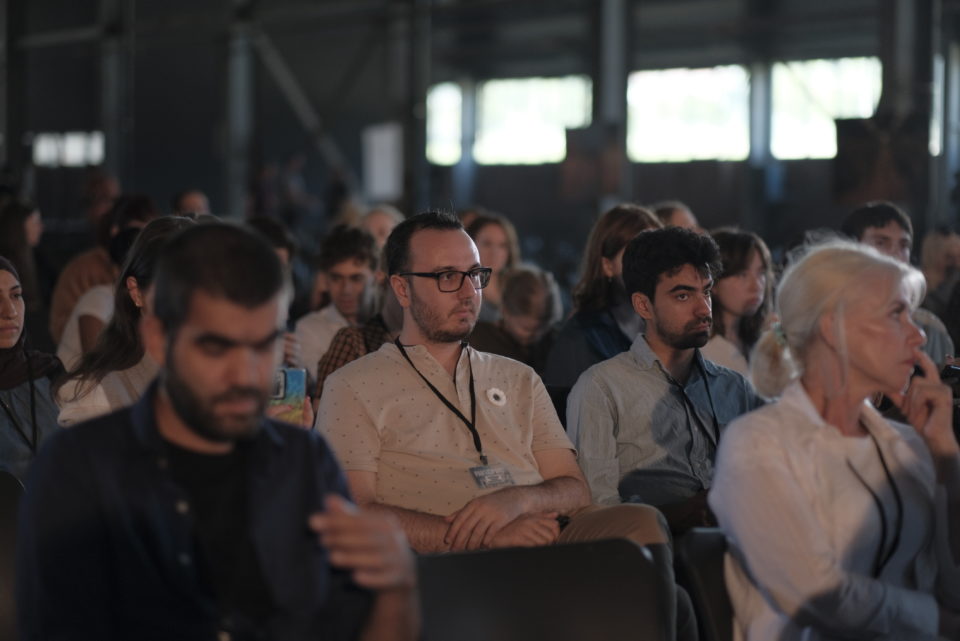
Meanwhile, Cate Asberry (USA) spoke about the lack of education on the history of Srebrenica in US schools, and how the PCRC’s Youth School has opened her eyes to the topic. “Before I arrived in Bosnia and Herzegovina, I was aware of Srebrenica and the atrocities that occurred but knew almost nothing about the town’s history or the extent of violence enacted against civilians. Witnessing both the lasting effects of the Srebrenica genocide on the local community and the community’s simultaneous ability to commemorate and honor the memories of victims revealed to me just how much work is being done to hopefully create lasting change in BiH.”
Reflecting on her experience, Emina Buljubašić from Tešanj, BiH stated, “The Srebrenica Youth School was a beautiful experience where I met many young people from different countries and critically approached topics of war crimes, genocide, and transitional justice, both in lectures and informal conversations. Although the topic of the Srebrenica genocide was emotionally challenging for me as a Bosnian, the time spent in Potočari with the PCRC team and the group of young participants, exchanging experiences with them, is something I would not trade for anything. Psychologically challenging but a wonderful experience.”
Aleksa Krstić from Serbia also attended this year’s Youth School. “As someone from Serbia, the school was an especially meaningful experience. At a time when the genocide in Srebrenica is being denied, it’s important for there to be a gathering place where the creation of knowledge, learning, and the exchange of experiences and ideas are insisted upon.”
PCRC President and Founder, Velma Šarić, reiterates the school’s objectives. “Peace education is crucial for building a society that understands and values diversity. Events like this school provide young people with the opportunity to learn from the past and actively contribute to building a better future. Only through education can we prevent the repetition of genocide and other mass atrocity crimes, and ensure lasting peace.”
The Srebrenica Youth School serves as a transformative platform, fostering deep understanding and empathy among global youth through education and firsthand experiences of historical remembrance. As highlighted by participants and speakers alike, the event underscores the vital role of peace education in preventing future atrocities and promoting lasting reconciliation in post-conflict societies like Bosnia and Herzegovina.





